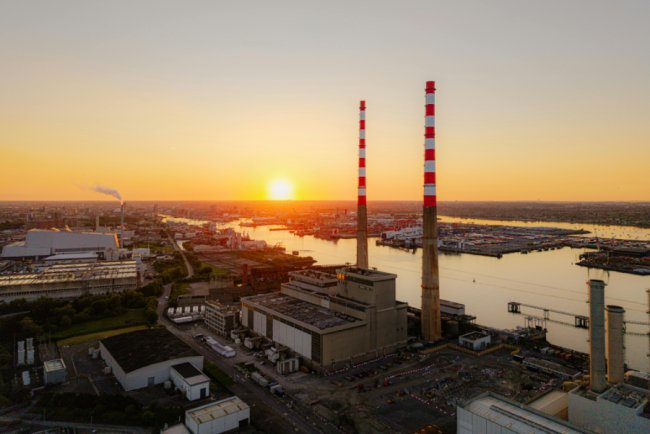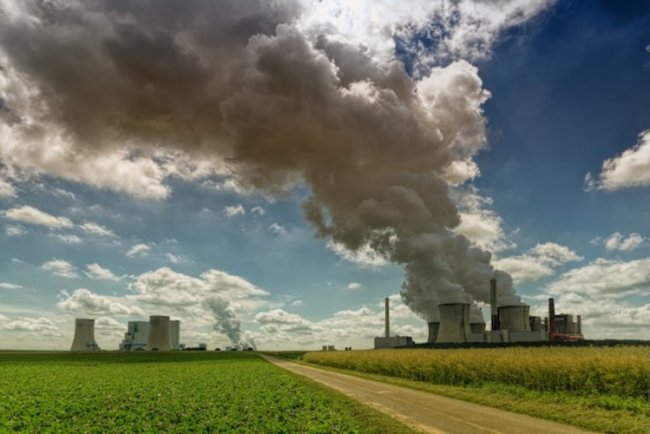£1.8B Investment To Improve Energy Efficiency For Homes
Britain invests £1.8B in energy-saving upgrades for low-income households to reduce bills and support net-zero goals.

Britain will spend £1.8 billion ($2.33 billion) on energy-saving improvements to low-income homes under the Warm Homes Plan. The plan will offer insulation, double glazing, solar panels, and heat pumps to as many as 170,000 homes, sharply reducing energy bills and carbon emissions. The investment is being made when a large number of families are having to deal with expensive energy bills because of the UK's dependency on global gas markets. The government believes this investment will bring relief by saving hundreds of pounds from household energy bills every year while also advancing the nation towards its goal of achieving net-zero emissions by 2050.
The Warm Homes Strategy will be implemented through two major funding streams: the Warm Homes: Social Housing Fund and the Warm Homes: Local Grant. The Social Housing Fund, allocated £1.29 billion, will fund 144 projects for the upgrading of the energy efficiency of social housing nationwide. At the same time, the Local Grant will fund £500 million in 73 projects across 270 local councils so that various low-income neighborhoods can enjoy these improvements.
This is an important component of the government's wider goal to raise living standards by raising Real Household Disposable Income as part of its "Plan for Change." Energy efficiency upgrades in social housing will help cut energy use, bills, and dependence on fossil fuels. The Department for Energy Security and Net Zero highlighted the significance of this programme, noting that it will assist vulnerable households in controlling their energy bills while providing a major contribution to decarbonization in the UK.
Miatta Fahnbulleh, Energy Consumers' Minister, underlined the need for this measure, affirming that a home to be warm and cozy cannot be a privilege but a human right. Far too long, numerous families have been living in cold homes that are inadequately insulated, with excessive bills and in desperate need of heating during winter. She emphasized that this money would provide long-overdue help for thousands of households nationwide.
Money is to be granted to a range of regional bodies, including the Greater Manchester Combined Authority and the West Midlands Combined Authority, in the Warm Homes and Public Sector Decarbonisation Devolution Programme. Regional powers will have very close partnerships with local authorities as well as with social landlords so that energy savings can be instilled into houses that most desperately require them.
Kate Henderson, National Housing Federation Chief Executive, also welcomed the funding announcement, highlighting that it is an important step towards decarbonizing England's social housing stock. She noted that addressing fuel poverty needs to be a priority if the government is to achieve its climate goals while making sure that low-income households can pay for heating their homes. Henderson also stated that enhancing energy efficiency in social housing is one of the most effective means of reducing emissions while improving residents' living standards.
Gavin Smart, CEO of the Chartered Institute for Housing, was in agreement with these views, recognizing the contribution of social landlords to making houses more energy-efficient. He underlined that this investment will help them to continue their efforts, backing large-scale retrofit schemes that will assist in reducing fuel poverty, lowering carbon emissions, and reducing energy bills for tenants.
Alongside the Warm Homes Plan, the government has launched a number of other initiatives to help vulnerable households. A £500 million Winter Package has been unveiled to bring relief during the winter months, and the expanded Household Support Fund will provide further financial support to struggling families. The government has also boosted funding for heat pump installations so that more households can benefit from sustainable heating solutions.
These programs demonstrate the government's awareness of the need to deal with both fuel poverty and global warming as a matter of priority. Through investing in energy efficiency improvements, Britain hopes to make warmer, greener homes as well as decrease its reliance on fossil fuels. The Warm Homes Plan provides not only monetary assistance to poor families but also is an integral part of the country's long-term plan for a greener future.
As energy prices keep going up and down, projects such as this will be vital in safeguarding low-income households from the effects of increased costs. The integration of insulation upgrades, renewable energy installations, and financial assistance measures is likely to make a real difference in the lives of thousands of families nationwide. By focusing on energy efficiency and sustainability, the government is making an important move towards meeting its net-zero goals while enhancing the living standards of the most vulnerable.
What's Your Reaction?

















